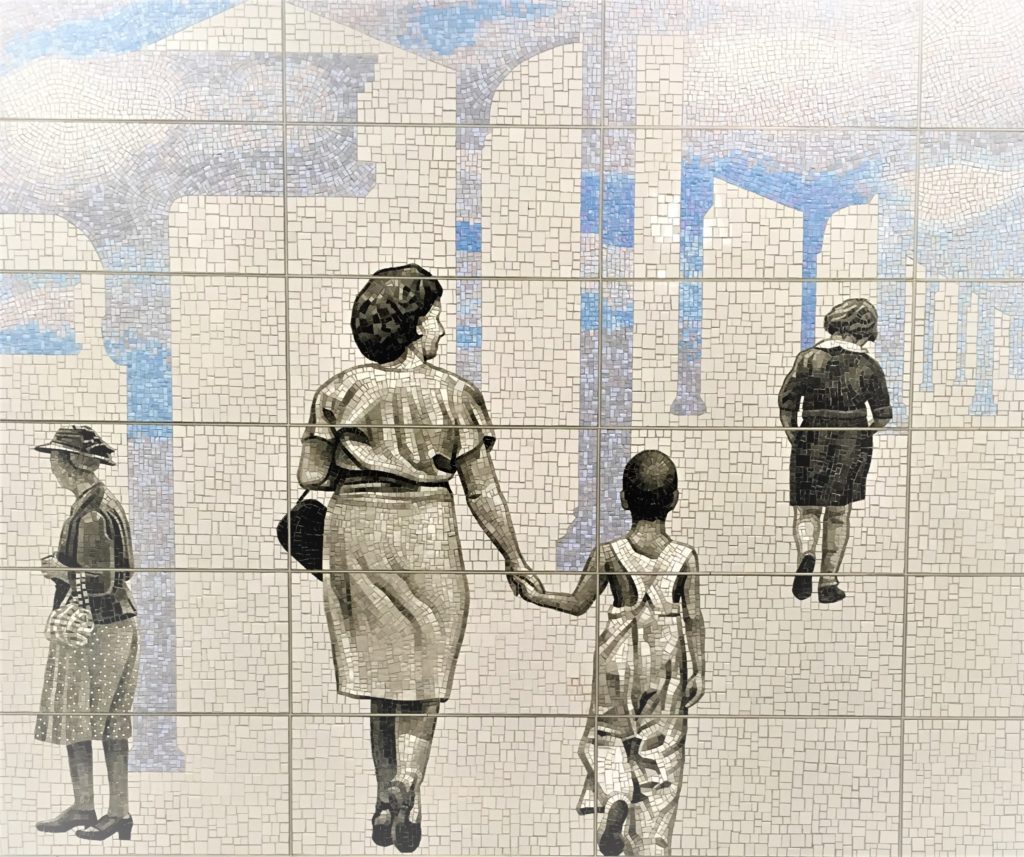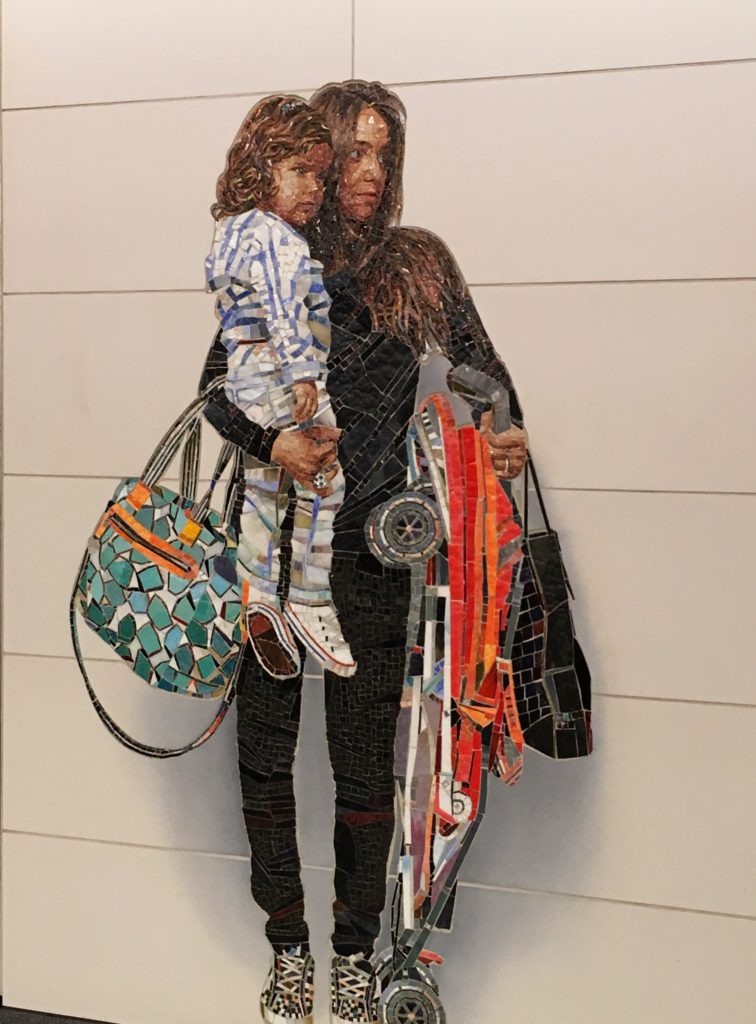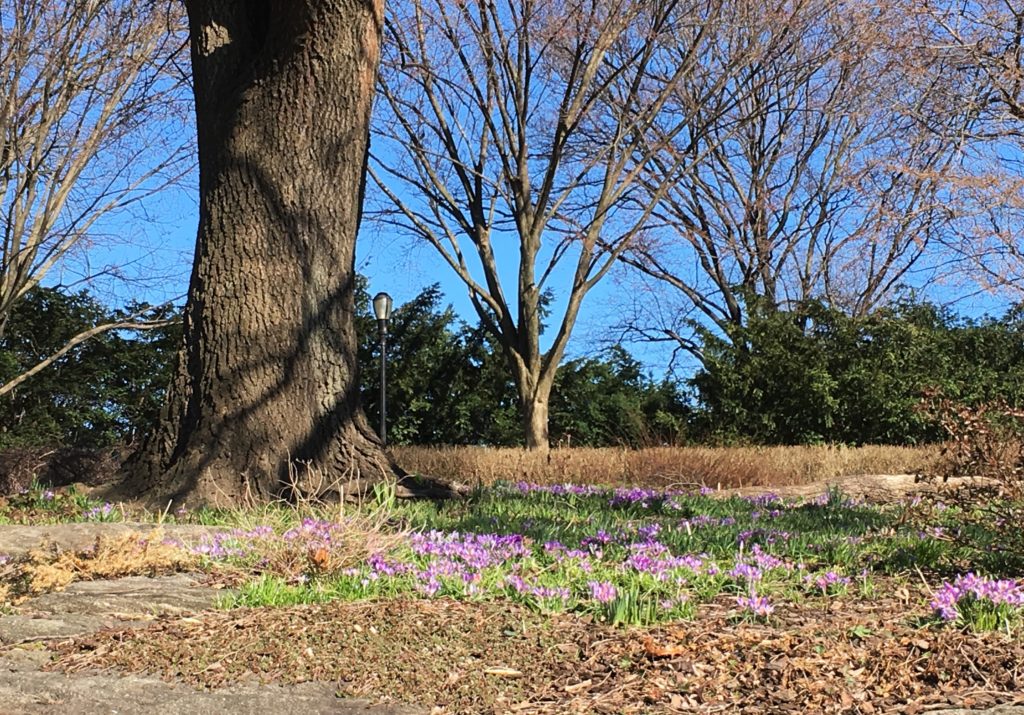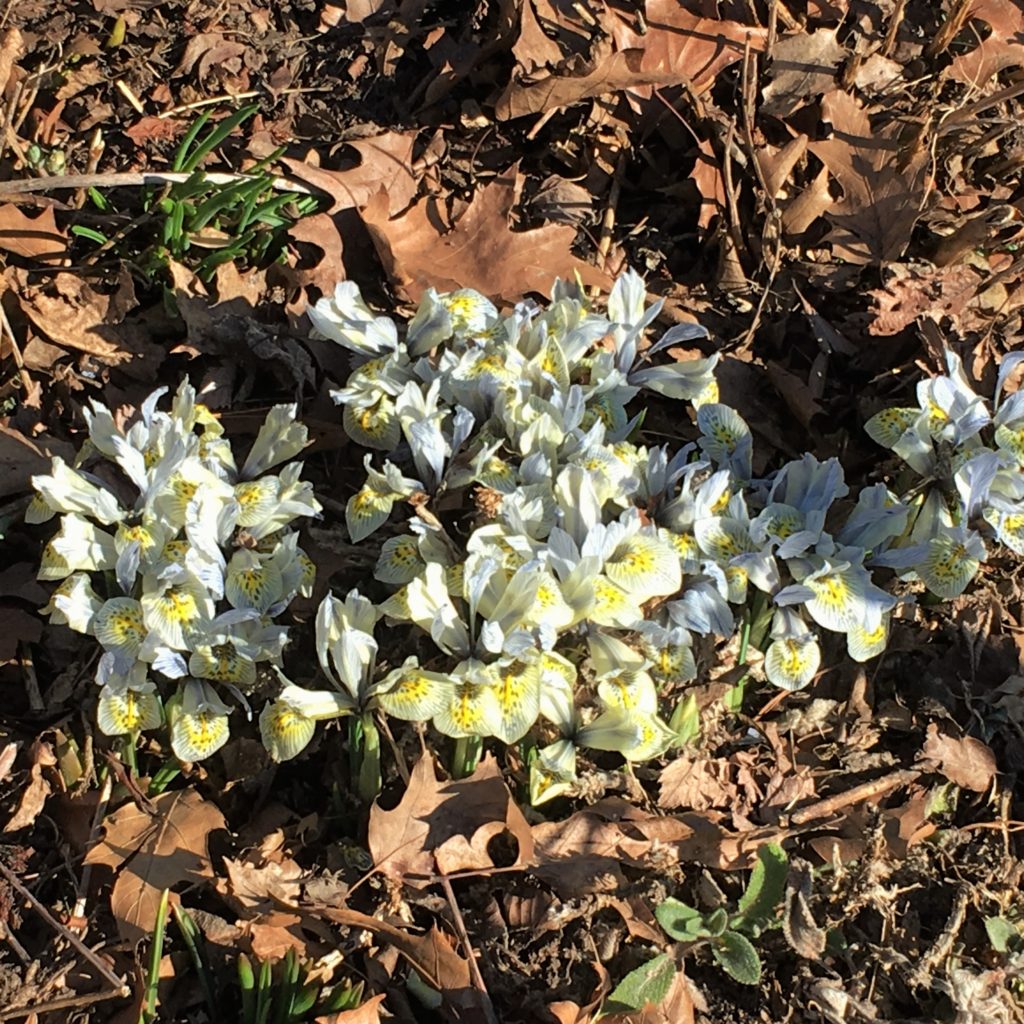Natural light is a rare commodity in the city, especially in winter months. Finally, the sun peeked through my windows. I took a walk up the hill to Fort Tryon Park. The blue sky, the gentle breeze and the blooming spring bulbs all reminded me of the beautiful verses of Eduard Mörike:
Er ist’s
Frühling läßt sein blaues Band
Wieder flattern durch die Lüfte;
Süße, wohlbekannte Düfte
Streifen ahnungsvoll das Land.
Veilchen träumen schon,
Wollen balde kommen.
Horch,
von fern ein leiser
Harfenton!
Frühling, ja du bist’s!
Dich hab’ ich vernommnen!
It is him!
Spring lets its blue ribbon
Fluttering in the air again;
Sweet, familiar scents
Touch the land tenderly full of
presage.
Violets, already dreaming,
Wish to bloom soon.
Listen!
from afar the faint sound of a harp!
Spring, yes, it is you!
It’s you I’ve heard!
Originally part of Maler Nolten, a romantic novel, this
poem is simple yet full of actions. The narrator sees the bright color, smells the sweet air, senses the flowers eagerness to come out and hears the heavenly sound of the harp. It has inspired numerous composers. The most well-known and frequently performed musical settings were by Robert Schumann and Hugo Wolf.[1]
Both composers let the piano carry out the fluttering blue ribbon: Schumann with a dotted descending scale, shaking gently by the repeating chords in the right hand; Wolf with weaving triplets which lasted throughout the main section of the song. Schumann’s melody has a folk-like character, while Wolf’s vocal line forms a longer and more sustained ribbon floating above the piano part. Interestingly, both composers chose to extend the celebratory acclamation with a long coda. Schumann repeated the final verses with quicker motion. Wolf simply let the piano run free with excitements.[2]
Er ist’s! I will let the music and photos tell the story.
[1]
Schumann’s 1849 setting was included in his Liederalbum
für die Jugend (Songbook for the Young), Op. 79. The collection also contains songs such as “Marienwürmchen”
(“Ladybird”) and “Der Sandman” (“The sandman”). Wolf’s 1888 setting was the sixth piece in Gedichte von Eduard
Mörike (Poems of Eduard Mörike).
[2] Er ist’s; Robert Schumann: Barbara Bonney, soprano; Vladimir Ashkenazy, piano;
Er ist’s; Hugo Wolf: Diana Damrau, soprano; Stephan Matthias Lademann, piano











